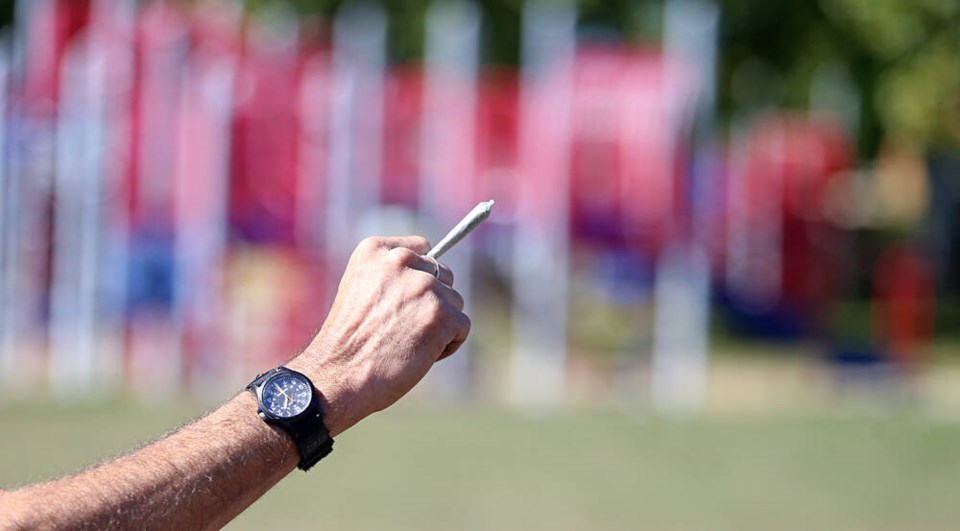The fate of the provincial government’s restrictions on public drug use will be decided through a constitutional challenge, after an unsuccessful attempt to appeal an injunction against the legislation.
The B.C. Court of Appeal on Friday denied a bid from Crown prosecutors to appeal a December decision by the B.C. Supreme Court that imposed a three-month injunction on Bill 34 on the grounds that the law would cause “irreparable harm.”
Public Safety Minister Mike Farnworth said he’s disappointed with the court’s decision.
Premier David Eby said it’s common sense that if the government can regulate alcohol and tobacco, “surely we can put rules in place in relation to hard drugs.”
“We’ll be making that argument in court to the judge as quickly as we can because we think it’s an important issue,” Eby said Monday, during an unrelated news conference in Victoria.
“I think British Columbians understand that we can have compassion about addiction and mental-health issues while having standards and rules around where is and isn’t appropriate for drug use.”
B.C. Supreme Court Chief Justice Christopher Hinkson ruled on Dec. 29 in favour of the Harm Reduction Nurses Association and imposed an injunction until March 31, pending a hearing of the constitutional challenge brought by the association.
The nurses association has argued that banning drug use in most public spaces would push people into back alleys where they are more likely to overdose and die alone.
The Restricting Public Consumption of Illegal Substances Act, which passed in the legislature in November, gives police the power to order people to stop using drugs in certain public places, including sports fields, beaches or skate parks and within six metres of building entrances. It was already illegal to use drugs around schools, splash pads and playgrounds.
People who refuse to move could be fined up to $2,000 and imprisoned for up to six months. Police also have the discretion to seize and destroy the person’s drugs.
BC United addictions critic Elenore Sturko slammed the B.C. NDP government for what she called a dangerous experiment with drug decriminalization that has exacerbated the toxic-drug crisis and led to rampant open drug use.
“After utterly failing to put in any safeguards, the NDP scrambled to address the fallout with Bill 34. Four months later, the bill is still in limbo and communities are feeling increasingly unsafe,” Sturko said during question period on Monday.
Eby has previously said people should be consuming drugs at supervised consumption sites where they are under the supervision of harm-reduction workers and can be connected with services.
However, harm-reduction advocates have said there are not enough overdose-prevention sites, with only 47 locations across the province.
And despite B.C. Coroners Service data that show 65 per cent of overdose deaths in 2023 were a result of smoking drugs, only 19 of B.C.’s 47 overdose prevention sites provide the option to smoke drugs, according to the Mental Health and Addictions Ministry.
There’s often intense public backlash to supervised consumption sites in some communities.
For example, last month, a proposal by Richmond council to explore adding a stand-alone supervised consumption site in that city led to two days of intense and highly charged public debate. Vancouver Coastal Health said a supervised consumption site is not being explored for that area.





